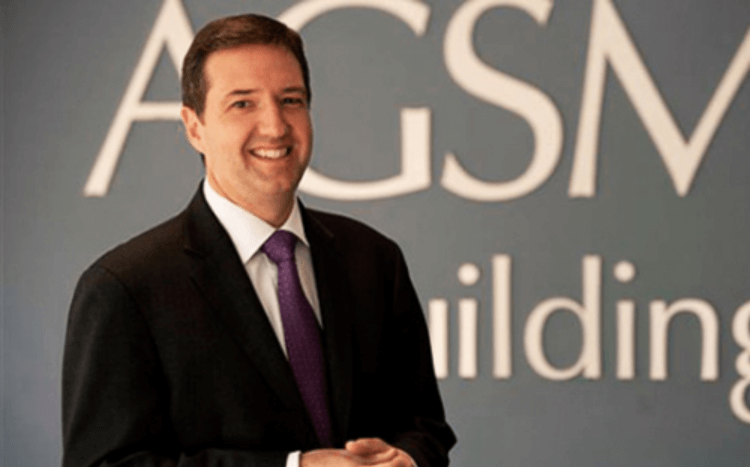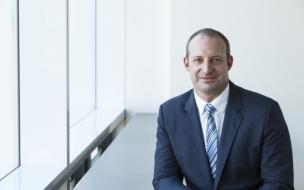Styles will replace Professor Geoffrey Garrett, who is jetting off to lead Wharton School in Pennsylvania. They are big boots to fill. But he is clearly undaunted by the prospect of leading Australia’s highest-ranking business school; when we spoke yesterday morning he had already been second-in-command since 2011.
His appointment as Deputy Dean three years ago came after seven years at the University of Sydney, a period which he ended as Associate Dean – leading the university’s business school’s entire management education portfolio.
He is a thoroughbred scholar and businessman, and is popular among his colleagues to boot; he was elected by a selection panel of distinguished ASB figures.
Although, their support would be established through his years as Deputy Dean and Director of the Australian Graduate School of Management – the section of ASB that offers MBA programs. “There’s always a question of inside versus outside,” says Styles. “Clearly, that gave me an understanding of the key challenges and I was able to leverage that.”
His appointment was less a surprise than it was a perfect fit. If there was an ASB template, Styles would fit the bill. He has studied at and worked in a bevy of Australian universities; he is a local man who understands the culture.
Yet his vision for the school is not inward looking. He wants to go global. But his new position at the helm of ASB is imminent; July 1, when Professor Garrett starts at Wharton, will be a date marked in his calendar. And he has much to do before then to implement his blueprint.
Fred Hilmer, Vice-Chancellor, thinks he is the man for the job. “I am confident that Chris will be an outstanding leader, further cementing ASB’s position as Australia’s pre-eminent business school,” Professor Hilmer said.
During Styles’s three years as deputy, AGSMs' MBA programs have been consistently ranked top in Australia. They are in the top 100 world-wide and graduates go on to achieve salary increases of about 70 per cent. Australian MBAs have perhaps the highest average earnings of any region in the world; around $110,000.
ASB will be hoping that their new leading man can engineer similar success on an international scale. Expectations are high. AGSM’s MBA cohort is approximately 80 per cent international.
“Being an international business school is very important. Diversity in the classroom mirrors the real world and that MBA class is a good example,” says Styles. “The whole university benefits from having a strong international as well as domestic focus.”
But it may seem like a mountain to climb. Of the full-time MBA class of 2013, 17 countries were represented, but the top nationalities were all Asia-Pacific; Australia, India and China.
European candidates are hot on the list of most schools’ desired candidates, and Styles sees the potential. “There is huge potential to lift our profile in Europe,” he enthuses.
“Looing at Australia as a location, I think we need to lift our profile even further and [provide] a narrative about what we are; which is both a high-end, rigorous business school, as well as a well-connected business school.”
Styles hardens when he talks about the schools' rankings. Top they may be, and he agrees they need to pay attention to them, but he sounds uncomfortable when I raise the subject. “The day we start rearranging our activities to play the rankings game is a sad day,” he deadpans.
For Styles, it is all about raising their profile. “It’s about lifting our international engagement, but also lifting our profile as well, in those places that we are less well known. That’s something we need to continue to ramp up,” he says.
Alongside spearheading Australia’s management education, Styles has published a number of research papers, case studies and management articles in leading academic journals. He has received a raft of research grants, relating to foreign investment and service exports, to name but a few areas.
It is easy to forget that his new role will include leading the school’s research effort. Last week, ASB was ranked 83rd out of the 100 top research business schools world-wide. Many schools in the Asia Pacific region have punched above their weight in that department – but not ASB.
“We have eight disciplinary schools and [there are] round about 300 academics within that,” says Styles.
He wants to improve the school’s external facing role as much as the internal one. Most importantly for a Dean, he says, his job will be to foster relationships with the business community.
For Styles the entrepreneurship and marketing expert – he is a Fellow of the Australian Marketing Institute – that may mean leveraging his background experience. Does he hope to strengthen the marketing offering at ASB? “I guess whatever your background is, that’s the lens you have on when you come to the job,” he says.
He is conscious of ASB’s position in the market. “Also [it’s about] making sure we can project ourselves and the great strengths we have,” says Styles, but our talk quickly turns back to international standing: “Within our environment here in Sydney, that’s strong. The further you go internationally, that’s where work needs to be done to raise the profile of the things we do.”
An international experience is essential for MBA students and that goes a long way to explaining the reasons behind ASB’s expansion into China. AGSM offers a flexible MBA program based in Hong Kong. But Styles says it’s much more than a degree.
“It’s really the whole enterprise, but the Hong Kong program is an important asset for us and something we need to leverage,” he says, but adds: “If we’re going to be a world player, we need to be a regional player. A two-way engagement is fundamental.”
A way that schools strengthen this international reach is through distance learning programs. Styles is swift to point out that they have had an online program, a Master of Business & Technology (MBT), which uses AGSM’s eLearning technology, for years.
But what about an online MBA? The topic sees him answer cautiously. “The question is: how do you leverage that capability across a broader spread of programs? And that is something we’re looking at,” he says.
“The flexibility that online can give you, that’s often a much more efficient way to get through the core knowledge. But you also [need to] have an interactive environment as well.”
But he can’t talk online programs for ever. He has a full day of work ahead. But most importantly, the clock is ticking towards his first day as ASB’s new Dean. “I’m very passionate about this place and we’re already arguably the best school in the country. But I see a lot of opportunity for us.”
RECAPTHA :
50
1a
af
d3








